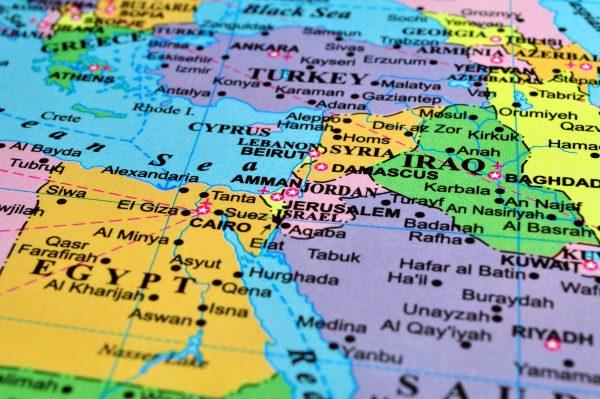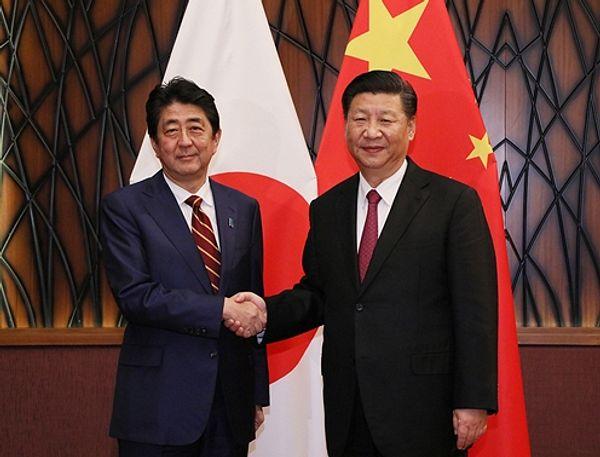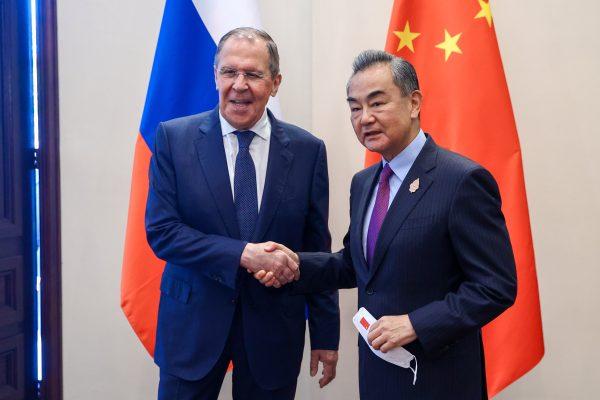Chinese nationalists on social media used phrases including “Open Champagne!” to celebrate the death of Japan’s former Prime Minister Abe Shinzo, who was assassinated Friday morning while giving a campaign speech in support of a candidate in the ruling Liberal Democratic Party. Abe, 67, was shot at twice on Friday approximately 11:30 a.m. local time in the city of Nara, close to Kyoto, while he was giving a campaign speech for Kei Sato, a fellow Liberal Democratic Party member and a national election candidate. Abe was rushed to hospital in…
Month: July 2022
The Impact and Implications of China’s Growing Influence in the Middle East
Advertisement Amid evolving regional geopolitical tensions and changing security dynamics in the Middle East, Beijing is accentuating its efforts to expand economic relations with regional powers and forge comprehensive strategic partnerships with the Arab world. To date, China has cautiously walked a tightrope in the region to balance between regional rivals. However, its growing presence in the region likely will pull Beijing into wider engagement eventually, especially as the emerging regional security arrangement paves way for newer challenges that would increase the role of regional powers amid U.S. withdrawal. Beijing’s…
China Reacts to Abe Shinzo Assassination
Advertisement The assassination of former Prime Minister Abe Shinzo, Japan’s longest-serving leader, during a campaign event in Nara, Japan, has shocked the world. In China, which has a complicated relationship with Japan, and with Abe in particular, the sudden tragedy sparked mixed reactions. The initial response came from China’s Foreign Ministry. Spokesperson Zhao Lijian was asked about the shooting in the regular daily press conference – at the time, Abe was critically injured but had not yet been pronounced dead. Zhao responded that China was “shocked” by the “unexpected incident.”…
Penny Wong: China and Australia take ‘first steps towards stabilising relationship’
Penny Wong, Australia’s foreign affairs minister, says Canberra and Beijing have taken the “first step towards stabilising the relationship” after the first face-to-face meeting between the two countries’ foreign ministers since 2019. After a meeting with Wang Yi, her Chinese counterpart, on the sidelines of the G20 summit in Bali on Friday, Wong told reporters Australia would continue to push for an end to Beijing’s “coercive” trade sanctions against a range of exports, and would also not recoil from any domestic policy decisions taken “on the basis of our national…
Wang’s G20 Meetings Highlight China’s Ukraine Messaging
Advertisement The G-20 Foreign Ministers’ Meeting in Bali, Indonesia, marked the first time Russia’s Foreign Minister Sergey Lavrov was in the same room as his counterparts from the G-7 nations since Russian troops invaded Ukraine in February 2022. Things did not go particularly well — Lavrov walked out of the G-20 meeting altogether on Friday, complaining that Western governments were only interested in “frenzied” criticism of Russia. But he found a more friendly reception in his bilateral meeting with Chinese Foreign Minister Wang Yi. Wang was the first foreign minister…
Live news: Australia and New Zealand to coordinate on electric vehicle fleet; danger from NSW floods continues
From 54m ago Australia and NZ to coordinate on electric vehicle fleet Royce Kurmelovs Australia will coordinate with New Zealand when it comes to procuring electric vehicles for its government fleet. Prime minister Anthony Albanese made the announcement on Friday when discussing opportunities for trans-Tasman collaboration in the area of renewable energy. Albanese said: If we are all competing against each other for procurement at the same time, we will end up paying more for it but not if there is cooperation between Australia and New Zealand. The PM went…
Zero Covid holds danger for China’s Xi
In June, Mr Xi visited Wuhan, where the pandemic first started. State media said he stressed the value of the “dynamic zero Covid” approach and told locals the government would prioritise people and prioritise life. He was quoted as saying that, if China switched to a “herd immunity” approach, the aftermath would be unimaginable. BBC
China, South Korea Foreign Ministers Pledge Deepened Cooperation
Advertisement China’s Foreign Minister Wang Yi had a full day on July 7. While in Bali, Indonesia for the G-20’s foreign ministers’ meeting, Wang held bilateral talks with his counterparts from Argentina, Australia, Canada, the EU, France, Germany, India, Indonesia, the Netherlands, Russia, Saudi Arabia, Singapore, Spain, and the United States, according to China’s foreign ministry. Oddly, the ministry did not include South Korea on that extensive list, but Wang in fact did meet with the foreign minister from Seoul, Park Jin, as well. It was the first in-person meeting…
China’s Communist Party cracks down on larping
In the past few days, news from the south-western city of Chengdu has swept the internet. A 22-year-old student was admitted to hospital after playing a game of jubensha (“script killing”). So terrified had she become that she felt dizzy and numb. Doctors concluded she had suffered a brain haemorrhage. The terse report in state-run media rang alarm bells. On Weibo, a microblog, more than 140m people viewed a hashtag referring to it. Thousands posted comments. The concern of many was not the fate of the woman but of jubensha.…
A huge data leak in China was not unexpected
The Communist party’s obsession with surveillance may have come back to bite it on June 30th. A hacker using the name “ChinaDan” claimed to have stolen a database from Shanghai’s police department, containing information—including names, phone numbers, national id numbers and case details—of 1bn people. For the price of ten bitcoin (around $200,000), ChinaDan was willing to sell the data. To prove authenticity, the hacker released a data set containing 750,000 records. Listen to this story.Enjoy more audio and podcasts on iOS or Android. Your browser does not support the…


